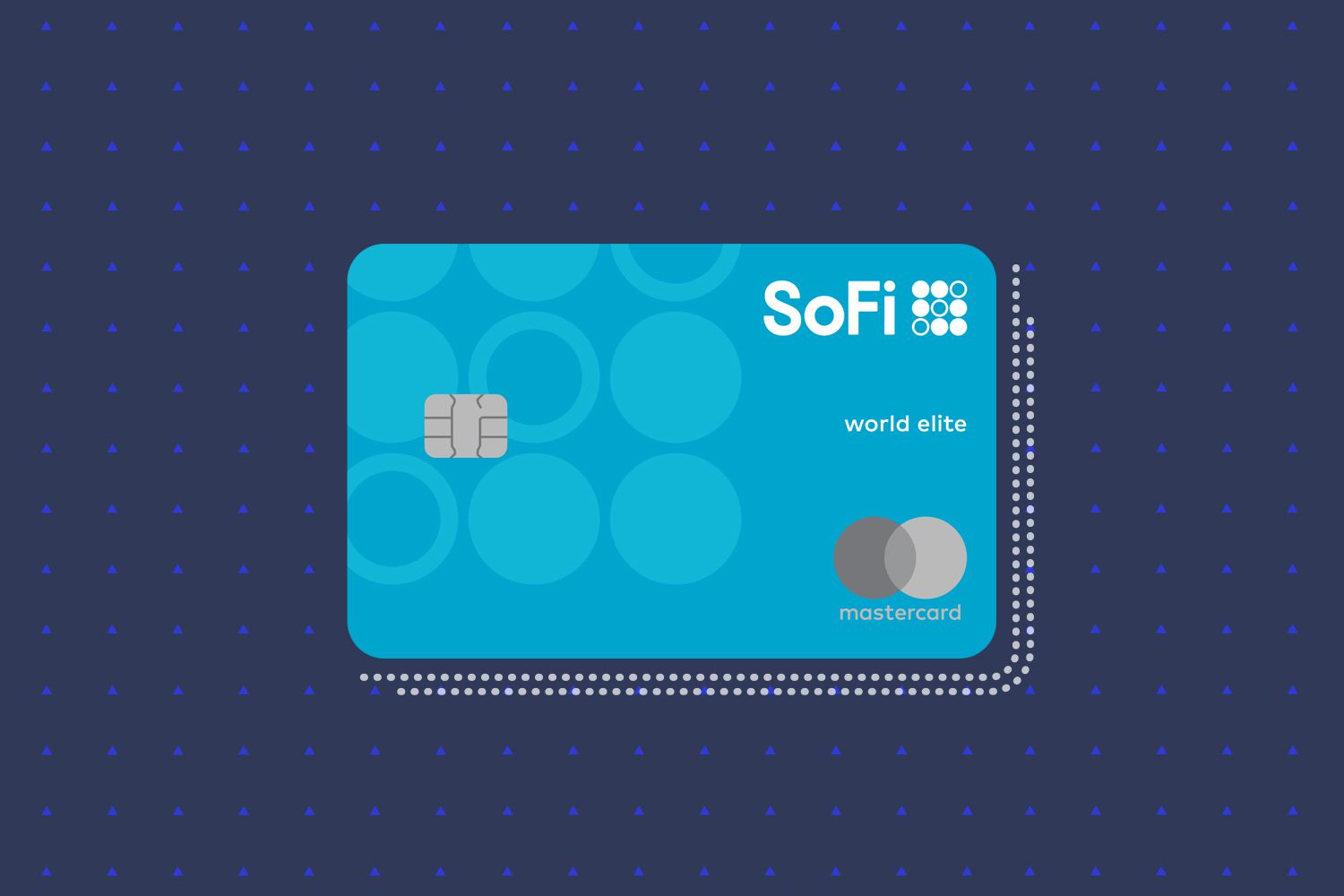

Finance
What Credit Bureau Does Wells Fargo Pull From
Published: January 9, 2024
Looking for finance options? Find out which credit bureau Wells Fargo pulls from when considering your credit application.
(Many of the links in this article redirect to a specific reviewed product. Your purchase of these products through affiliate links helps to generate commission for LiveWell, at no extra cost. Learn more)
Table of Contents
Introduction
When it comes to applying for credit, whether it’s a loan, credit card, or mortgage, most financial institutions pull your credit report from one or more credit bureaus to assess your creditworthiness. Wells Fargo, one of the largest banks in the United States, also follows this practice. However, you may be wondering, which credit bureau does Wells Fargo pull from?
Understanding this can be crucial, as it gives you insight into the factors that Wells Fargo considers when evaluating your creditworthiness. In this article, we will explore the credit bureaus used by Wells Fargo and shed light on the factors that influence their choice. Additionally, we will discuss the implications this decision has for consumers like you, and provide guidance on how to check your credit report with Wells Fargo.
By the end of this article, you will have a clearer understanding of how Wells Fargo operates and the steps you can take to proactively manage your credit profile when dealing with this institution.
Understanding Credit Bureaus
Before delving into the credit bureaus used by Wells Fargo, it’s important to have a solid grasp of what credit bureaus are and how they function. Credit bureaus are organizations that collect and maintain consumer credit information, which includes details such as your credit history, payment patterns, outstanding debts, and public records. This information is used by lenders, including Wells Fargo, to assess your creditworthiness and make informed decisions about lending.
There are three major credit bureaus in the United States: Equifax, Experian, and TransUnion. These bureaus obtain credit-related data from various sources, such as lenders, collection agencies, and public records. They compile this information into credit reports, which are then used by financial institutions, landlords, and other entities to evaluate your creditworthiness.
It’s worth noting that although Equifax, Experian, and TransUnion gather similar types of credit information, there can be variations in the data they collect and report. This is due to differences in reporting practices among creditors and the specific information provided to each bureau.
Credit bureaus also calculate credit scores, which are numerical representations of an individual’s creditworthiness. These scores are based on the information in your credit report and serve as a standardized measure of your credit risk. The most commonly used credit scoring models are FICO (Fair Isaac Corporation) and VantageScore, although there are others in use as well.
Understanding the role of credit bureaus and credit scores is vital in comprehending how financial institutions, such as Wells Fargo, evaluate your creditworthiness. With this foundation, we can now explore which credit bureau(s) Wells Fargo pulls from when assessing credit applications.
Wells Fargo’s Choice of Credit Bureau
Wells Fargo, like many other financial institutions, pulls credit reports from one or more of the major credit bureaus to evaluate the creditworthiness of applicants. However, Wells Fargo does not disclose the specific credit bureau it primarily uses for credit inquiries. Instead, their choice of credit bureau or bureaus may vary depending on several factors, including regional preferences, market conditions, and the type of credit being applied for.
It is important to note that Wells Fargo may pull credit reports from multiple credit bureaus to obtain a more comprehensive view of an applicant’s credit history. This ensures that they have access to a wide range of credit data and provides a more accurate assessment of an individual’s creditworthiness.
As an applicant, it is essential to understand that although Wells Fargo may use information from one or more credit bureaus, they make their lending decisions based on a holistic review of your credit profile. This includes factors such as payment history, credit utilization, length of credit history, and any negative or derogatory marks on your credit report.
Although Wells Fargo does not disclose its preferred credit bureau, it is advisable to regularly monitor your credit reports from all three major credit bureaus: Equifax, Experian, and TransUnion. This way, you can be aware of any discrepancies or inaccuracies in your credit information and take the necessary steps to correct them. By actively managing your credit and ensuring the accuracy of your credit reports, you can put yourself in a stronger position when applying for credit with Wells Fargo or any other financial institution.
Next, let’s explore the factors that may influence Wells Fargo’s choice of credit bureau for credit inquiries.
Factors Influencing Wells Fargo’s Decision
Several factors can influence Wells Fargo’s decision regarding which credit bureau(s) to pull credit reports from when evaluating credit applications. Understanding these factors can shed light on why certain credit bureaus may be preferred in certain situations.
1. Regional Preferences: Wells Fargo operates in various regions across the United States. Depending on the region, there may be a preference for a specific credit bureau. For example, if a particular credit bureau has a stronger presence and more comprehensive data in a specific region, Wells Fargo may prioritize pulling credit reports from that bureau in that area to gain a more accurate picture of an applicant’s credit history.
2. Market Conditions: The credit landscape is constantly evolving, and market conditions can impact the choice of credit bureau. Wells Fargo may consider factors such as economic trends, lending patterns, and credit risk in deciding which credit bureau(s) to pull reports from. These considerations help ensure that they have access to the most relevant and up-to-date credit information when evaluating applications.
3. Type of Credit Application: Different types of credit applications may warrant different considerations. For instance, a mortgage application may require more extensive credit history analysis, while a credit card application may focus on current credit utilization and payment behavior. Depending on the type of credit being applied for, Wells Fargo may choose a specific credit bureau(s) known for providing detailed information relevant to that type of credit.
4. Data Availability: Credit bureaus collect information from various sources, but the data they receive can vary. Wells Fargo may consider the availability and completeness of credit data when selecting a credit bureau(s) for credit inquiries. If a particular bureau has access to more comprehensive and accurate credit information, it may be prioritized in the decision-making process.
5. Relationship with Credit Bureaus: Banks like Wells Fargo maintain ongoing relationships with credit bureaus. These relationships can influence the choice of credit bureau for credit inquiries. The depth of the relationship, data sharing agreements, and the level of collaboration can all impact Wells Fargo’s decision on which credit bureau(s) to pull credit reports from.
It is important to note that while these factors influence Wells Fargo’s decision, the bank’s ultimate goal is to assess an applicant’s creditworthiness accurately. They aim to make informed lending decisions based on a comprehensive analysis of an individual’s credit history and financial situation.
Now that we have explored the factors that influence Wells Fargo’s choice of credit bureau, let’s examine the implications this decision has for consumers.
Implications for Consumers
The choice of credit bureau(s) by Wells Fargo can have several implications for consumers when applying for credit. Understanding these implications can help individuals navigate the credit application process more effectively and make informed decisions about managing their credit.
1. Varying Credit Information: Since Wells Fargo may pull credit reports from multiple credit bureaus, it is crucial for consumers to monitor their credit reports from all three major bureaus: Equifax, Experian, and TransUnion. This ensures that you have a comprehensive understanding of your credit history and can identify any discrepancies or errors that may affect your creditworthiness. By regularly checking your credit reports, you can take steps to rectify any inaccuracies and maintain a strong credit profile.
2. Credit Score Differences: Each credit bureau calculates credit scores using their proprietary algorithms. As a result, credit scores may vary slightly between bureaus. When applying for credit with Wells Fargo or any other lender, it’s essential to be aware of this discrepancy. It is also worth noting that Wells Fargo may use their own internal credit scoring models in addition to considering the credit scores provided by the credit bureaus.
3. Lending Decisions: The credit information obtained from credit bureaus plays a significant role in Wells Fargo’s lending decisions. Based on an applicant’s credit history, payment behavior, and other factors, Wells Fargo determines the terms, interest rates, and credit limits offered. Having a strong credit profile with positive payment history, low credit utilization, and minimal negative marks can increase your chances of securing favorable lending terms from Wells Fargo.
4. Opportunities for Credit Improvement: By understanding the credit bureau(s) used by Wells Fargo, consumers can proactively work towards improving their credit profiles. By paying bills on time, keeping credit card balances low, and managing debts responsibly, individuals can build a strong credit history. Regularly checking credit reports and addressing any negative marks or errors can also contribute to improving creditworthiness and increasing the likelihood of favorable lending decisions.
5. Potential Disputes: In the event of discrepancies or inaccuracies on your credit report, it is important to take prompt action. If you believe there is an error on your credit report or if you identify fraudulent activity, you should contact the credit bureau(s) involved and initiate a dispute. Being proactive in resolving such issues can help protect your creditworthiness and ensure fair lending practices.
By understanding the implications of Wells Fargo’s choice of credit bureau(s), consumers can actively manage their credit and make informed decisions to enhance their credit profiles, improve their chances of securing credit from Wells Fargo, and achieve their financial goals.
Next, let’s explore how you can check your credit report with Wells Fargo.
How to Check Your Credit Report with Wells Fargo
Checking your credit report regularly is an important step in monitoring your credit health and ensuring the accuracy of the information being reported. Although Wells Fargo does not provide credit reports directly, they offer a simple and convenient way for customers to access their credit reports through their online banking platform. Here’s how you can check your credit report with Wells Fargo:
- Log in to your Wells Fargo online banking account. If you don’t have an account, you can easily sign up for one on the Wells Fargo website.
- Navigate to the “Account Summary” or “Account Services” section of your online banking account.
- Look for the option to access your credit report. Depending on the layout of the online banking platform, it may be listed under “Credit and Loans” or “Credit Score and Reports”.
- Follow the prompts to access your credit report. Wells Fargo may redirect you to a partner credit monitoring service, where you can retrieve your credit report.
- Review your credit report thoroughly. Pay close attention to any errors, discrepancies, or fraudulent activity.
- If you identify any inaccuracies or discrepancies, contact the credit bureau(s) directly to initiate a dispute and request corrections to be made.
It’s important to note that Wells Fargo provides access to your credit report for informational purposes and to help you manage your credit. It does not have a direct impact on your credit score or creditworthiness.
Additionally, remember that as a consumer, you have the right to request a free copy of your credit report from each of the three major credit bureaus every 12 months. You can obtain your free annual credit reports by visiting the official website AnnualCreditReport.com. Checking your credit reports from Equifax, Experian, and TransUnion regularly is crucial for monitoring your credit and identifying any potential issues.
By regularly reviewing your credit report, whether through Wells Fargo or other means, you can identify any red flags, rectify errors, and proactively manage your credit to maintain a strong and healthy credit profile.
Conclusion
Understanding which credit bureau Wells Fargo pulls from when evaluating credit applications is an important consideration for consumers. While Wells Fargo does not disclose its preferred credit bureau, they may pull credit reports from one or more of the major credit bureaus, including Equifax, Experian, and TransUnion. By regularly monitoring your credit reports from all three bureaus, you can ensure the accuracy of the information being reported and take proactive steps to manage your credit.
Factors such as regional preferences, market conditions, the type of credit being applied for, data availability, and the relationship with credit bureaus can influence Wells Fargo’s decision on credit inquiries. It is essential for applicants to maintain a strong credit profile by making timely payments, keeping credit utilization low, and addressing any inaccuracies or disputes promptly.
Wells Fargo’s choice of credit bureau(s) has implications for consumers, including variations in credit information, credit score differences, and lending decisions. By understanding these implications, individuals can actively work towards improving their creditworthiness and taking advantage of opportunities for credit improvement.
To check your credit report with Wells Fargo, you can access it through their online banking platform. Wells Fargo provides this service to help customers monitor their credit health and identify potential issues. It’s also important to utilize your right to access a free copy of your credit report annually from Equifax, Experian, and TransUnion through AnnualCreditReport.com.
In conclusion, staying informed about Wells Fargo’s choice of credit bureau(s) and actively managing your credit can increase your chances of securing favorable lending terms. By regularly reviewing your credit reports, rectifying errors, and maintaining a strong credit profile, you can position yourself for financial success and achieve your goals.














